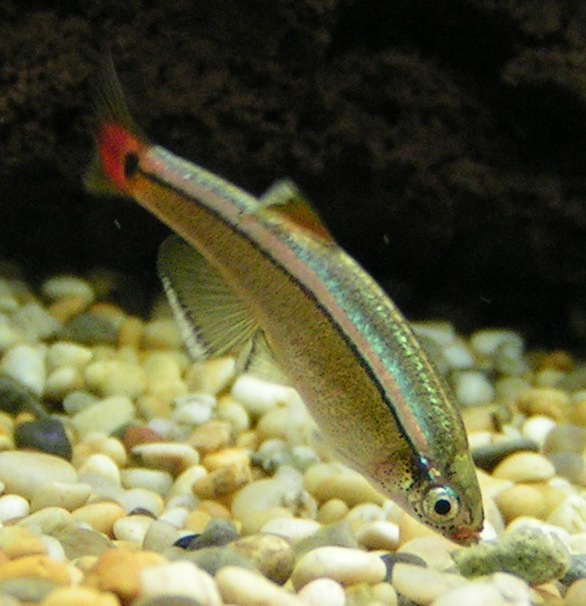Scientists in Canada have confirmed that oestrogens from OCPs in sewage water can spill over into rivers and feminise fish. Moreover it can have previously unrecognised impacts on other parts of the food chain.
 Karen Kidd is a researcher at the Uni of New Brunswick. She added oestrogens to the water of a lake in Canada for 3 years and monitored the fish population. The short-lived fish, like the fat head minnow, feminised and then showed dramatic reductions in population as clearly the affected males were breeding less effectively.
Karen Kidd is a researcher at the Uni of New Brunswick. She added oestrogens to the water of a lake in Canada for 3 years and monitored the fish population. The short-lived fish, like the fat head minnow, feminised and then showed dramatic reductions in population as clearly the affected males were breeding less effectively.
The populations of longer-lived fish were less impacted because they were less dependent on rapid breeding to replace their numbers. BUT, big fish, that were not affected directly by the oestrogens, showed a very large drop in population in subsequent years - because they had lost their food source of smaller fish.
Consequently there's a twist in the tale of this fish story because oestrogens, it seems, can have indirect effects on fish populations that were previously unrecognised. The good news is that oestrogens only last about 12 days in the environment, so if we sort out the sewage situation then the fish should bounce back, which is what happened within 3 years in the canadian lake after the oestrogen administrations were stopped.










Comments
Add a comment